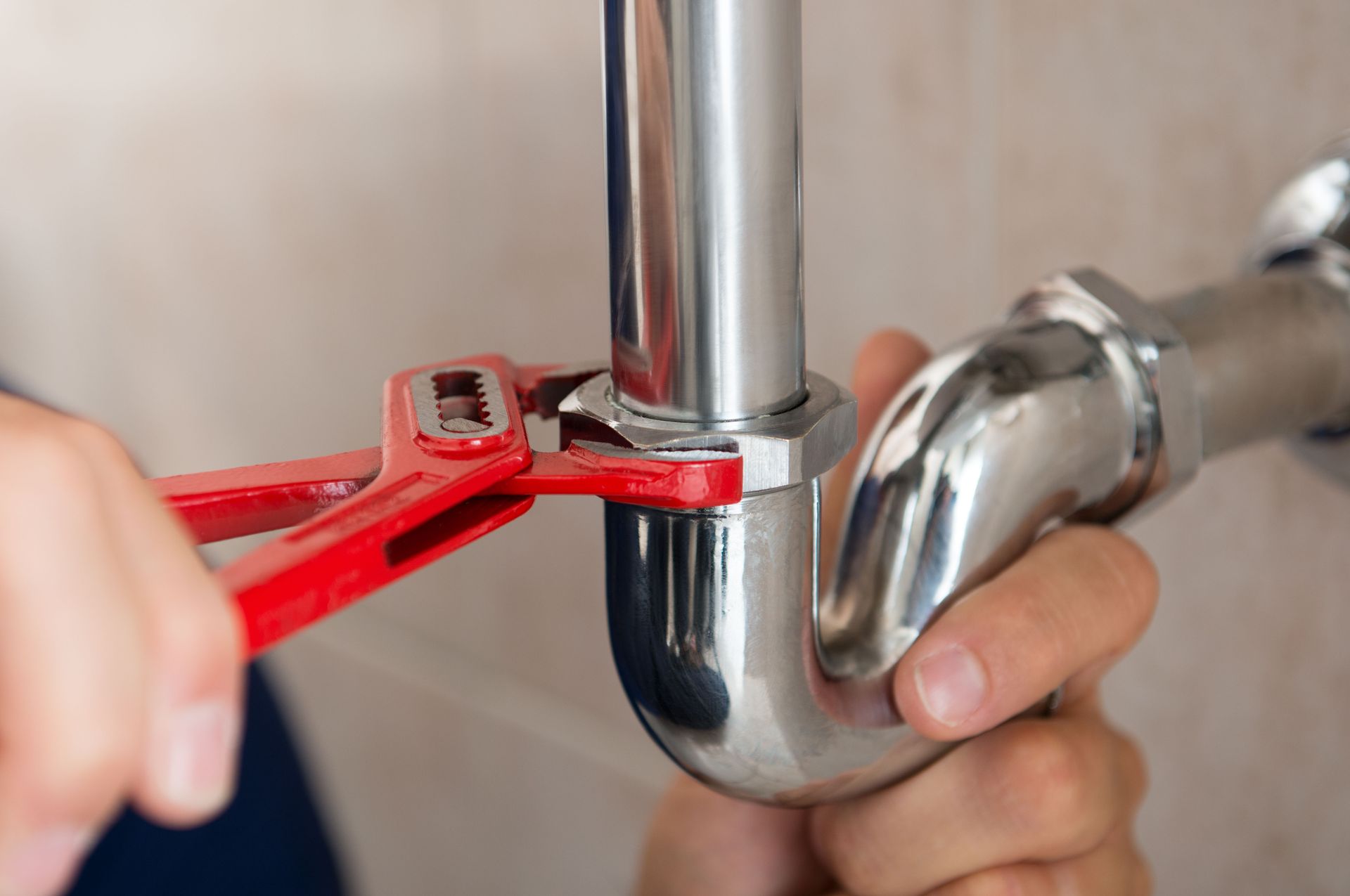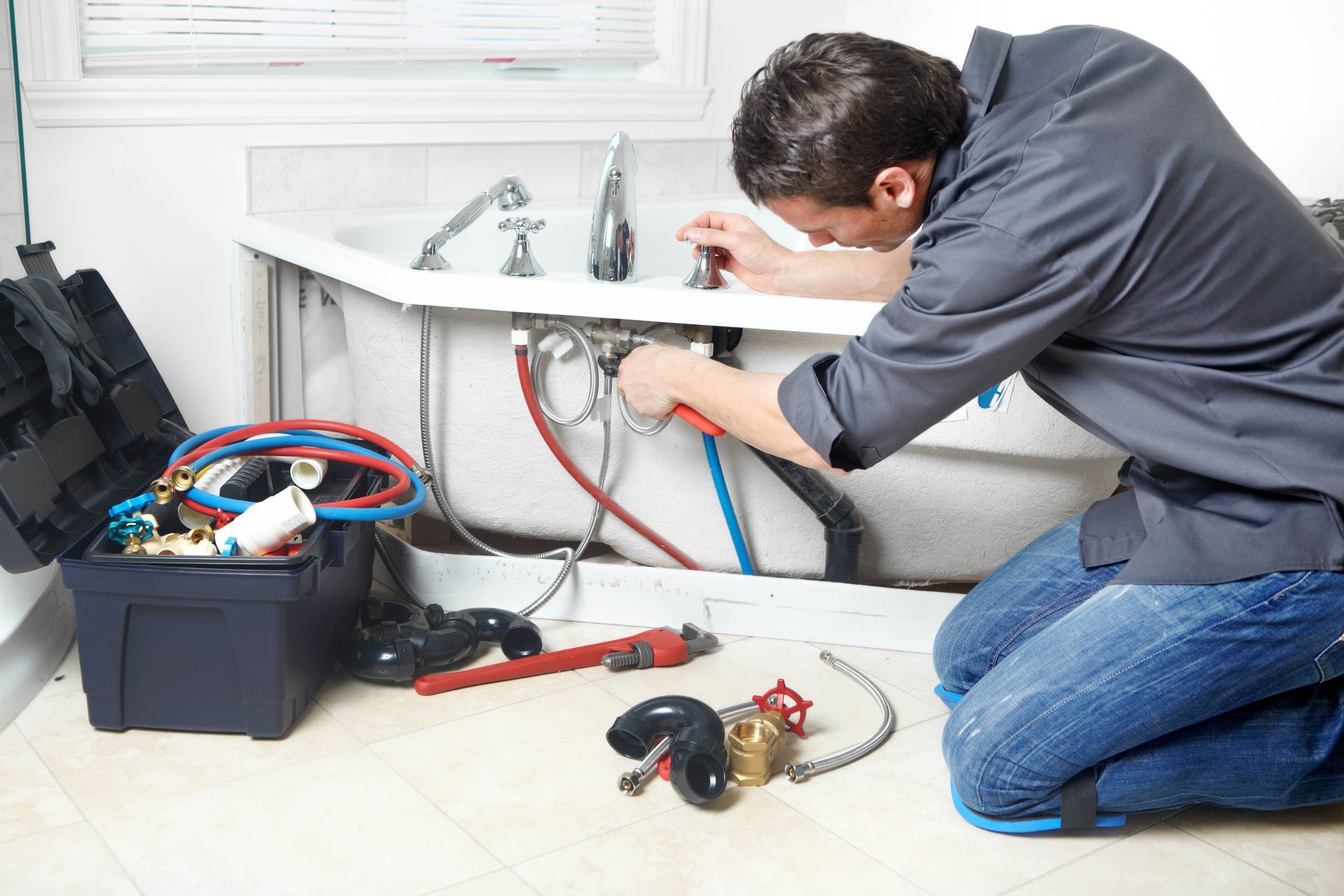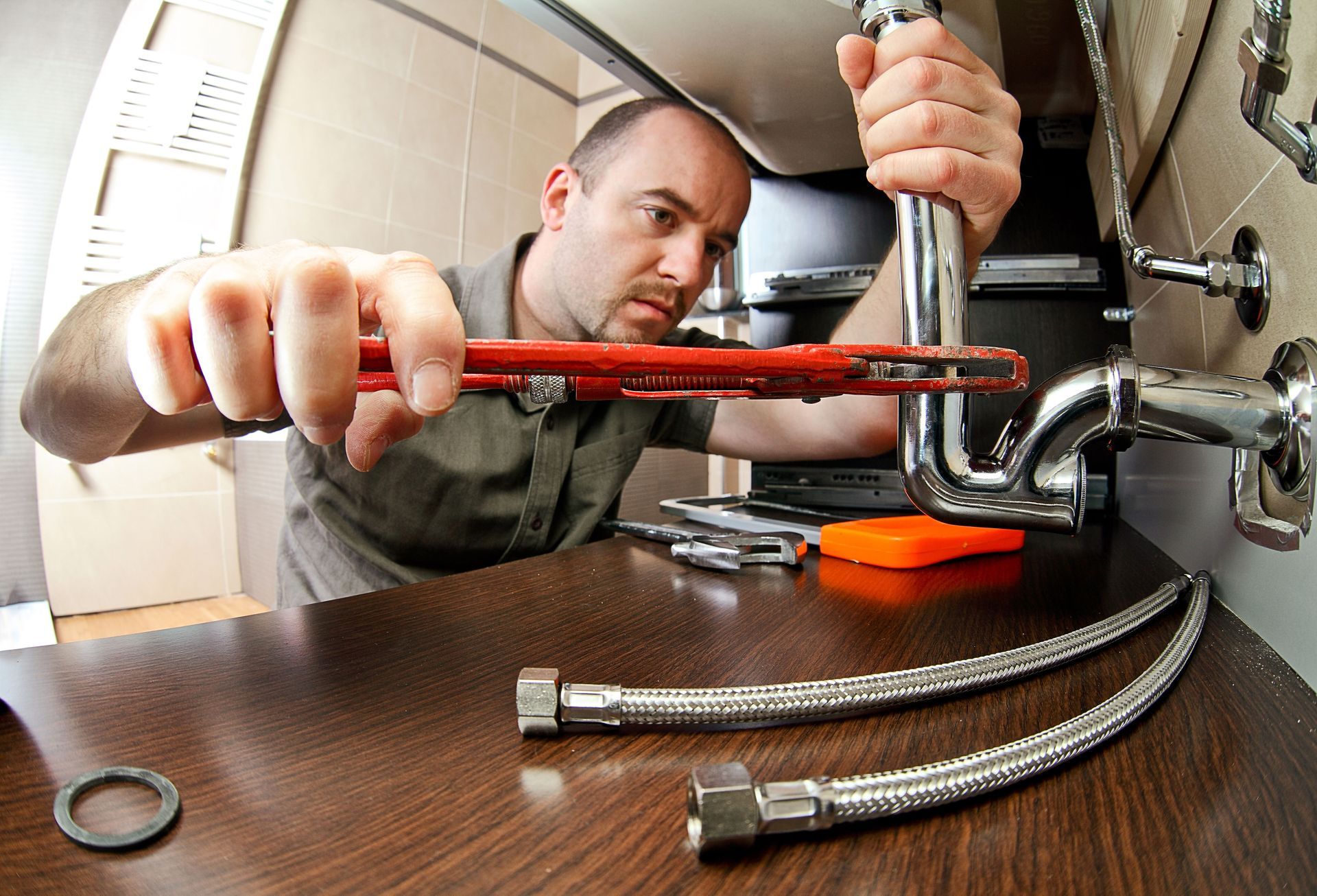October 21, 2025
When winter arrives, homeowners often focus on keeping their homes warm and cozy, but one of the most overlooked areas during this season is the plumbing system. Frozen or burst pipes can lead to serious water damage, costly repairs, and unnecessary stress during already cold months. With the help of your local plumber, winter pipe maintenance becomes much simpler and more effective.
Below are helpful, practical tips to keep your pipes in great condition throughout the winter months.
Inspect Your Plumbing System Before the Cold Sets In
A thorough inspection before winter can make all the difference in preventing plumbing issues. Early detection of leaks, worn insulation, or weak pipe joints allows you to repair them before freezing temperatures cause more damage. Homeowners should check visible plumbing under sinks, in basements, crawl spaces, and near exterior walls. If any pipes appear cracked or corroded, it's best to contact a local plumber for professional evaluation and repair.
An inspection not only identifies weak points but also ensures proper insulation and water flow throughout your system. This proactive step will give you peace of mind knowing that your plumbing is ready to handle the winter chill.
Insulate Exposed Pipes for Maximum Protection
One of the most effective ways to prevent freezing pipes is to insulate them. Pipes located in unheated areas such as basements, attics, and garages are especially vulnerable. Foam pipe insulation sleeves are affordable and easy to install, making them an ideal choice for homeowners looking to protect exposed plumbing.
According to The Spruce, residential pipes can freeze at temperatures below 33 degrees Fahrenheit. This means even slightly below-freezing temperatures can lead to trouble if pipes are unprotected. Wrapping pipes with insulation keeps water temperatures stable, reducing the risk of costly bursts. For a more comprehensive solution, your plumber can apply professional-grade insulation materials for hard-to-reach areas.
Keep a Consistent Indoor Temperature
A common mistake homeowners make during winter is lowering the thermostat too much at night or while away to save on heating costs. While this might reduce energy bills temporarily, it increases the risk of pipes freezing inside the walls. Maintaining a consistent indoor temperature of at least 55 degrees Fahrenheit keeps warm air circulating throughout the home, even in unoccupied areas.
If you plan to be away for an extended period, ask your local plumber to inspect your system and suggest additional measures such as draining exterior lines or installing a smart thermostat to regulate home temperatures. Consistent heat can prevent pipe freeze-ups that lead to significant water damage.
Let Faucets Drip During Extreme Cold
Allowing faucets to drip slightly during extremely cold nights relieves pressure in the plumbing system. Even a small trickle of water moving through the pipes can prevent freezing. This technique is particularly useful for faucets connected to pipes along exterior walls or unheated areas.
Your plumber may recommend which faucets are best to leave running and how much flow is necessary to prevent pressure buildup. Although it may seem wasteful, this small step can save thousands in repair costs if a pipe were to burst.
Seal Gaps and Drafts Near Pipes
Cold drafts can quickly lead to frozen pipes, especially in areas where plumbing runs close to exterior walls or windows. Inspect for gaps, cracks, or holes around pipes entering the home, and seal them using caulk or expanding foam insulation. These materials block cold air from seeping into vulnerable spaces.
In older homes, small openings can make a big difference in temperature loss. Sealing them improves energy efficiency and reduces the risk of pipes freezing. A local plumber can assist in identifying the most at-risk areas and apply weatherproofing measures that protect your plumbing while improving your home's insulation.
Disconnect and Drain Outdoor Hoses and Faucets
Outdoor plumbing is especially prone to freezing temperatures. Garden hoses and exterior faucets should be disconnected and drained before winter begins. When left connected, residual water can freeze and expand into the connected pipes, leading to cracks and leaks inside your home.
Once disconnected, shut off the outdoor water supply and let any remaining water drain out completely. Installing insulated faucet covers adds another layer of protection. Your plumber can show you how to properly winterize outdoor fixtures, ensuring your plumbing system remains intact through harsh weather.
Address Slow Drains or Leaks Immediately
Small leaks or slow drains often go unnoticed until they cause bigger problems in winter. Freezing temperatures can turn minor drips into major bursts. Inspect faucets, showerheads, and under-sink connections regularly for signs of moisture. If you detect even the smallest leak, repair it promptly.
A plumber can identify whether a slow drain results from a partial blockage or a damaged pipe, both of which can worsen in cold conditions. Fixing these issues before winter sets in helps maintain water flow and prevents ice buildup inside pipes.
Keep Your Garage Door Closed in Cold Weather
If your home has plumbing that runs through or near the garage, keeping the garage door closed helps maintain a stable temperature. This step is especially important for homes with laundry or utility sinks in the garage.
Cold air entering through an open door can rapidly drop the temperature around exposed pipes. To further protect them, consider adding insulation to the garage walls or using heat-safe coverings. Your plumber can inspect and reinforce any plumbing that runs through your garage to reduce the risk of freezing.
Know Where Your Main Water Shut-Off Valve Is Located
In the event of a burst pipe, knowing how to quickly shut off your home's main water supply can prevent extensive flooding and damage. Every homeowner should know the valve's location and test it periodically to ensure it turns easily.
If your home's shut-off valve is difficult to access or doesn't function properly, contact a plumber to inspect it. They can also install a smart shut-off system that automatically detects leaks and shuts off water before damage occurs.
Protect Pipes in Basements and Crawl Spaces
Basements and crawl spaces are often the coldest areas of a home, making them prime spots for frozen pipes. Insulating these spaces and sealing any air leaks can prevent costly damage. If these areas are especially drafty, consider adding a small, safe heat source to maintain a stable temperature.
A local plumber can help identify vulnerable sections and apply professional-grade insulation or wrap solutions. Taking care of these spaces before winter can prevent major plumbing emergencies later on.
Schedule Routine Plumbing Maintenance
Regular maintenance is essential to keeping your plumbing in top condition year-round. Routine inspections, drain cleaning, and water pressure checks can identify issues before they become serious. Fall is an excellent time to schedule these services, as it allows you to address potential problems before winter arrives.
Your plumber can also inspect your water heater, sump pump, and exterior fixtures during maintenance visits. This preventive approach helps extend the lifespan of your plumbing system while avoiding emergency repairs.
Stay Alert for Signs of Frozen Pipes
Early detection of frozen pipes can prevent major damage. Signs include reduced water flow, frost on pipes, or strange noises coming from your plumbing system. If you suspect freezing, turn off your main water supply and call a plumber immediately.
Professionals have the right tools to safely thaw frozen pipes and assess for cracks or leaks. Acting quickly reduces the likelihood of costly water damage once the ice melts.
If you need professional help to prepare your plumbing for winter, contact Dayton Plumbing Co LLC, your trusted local plumber, for reliable service and expert maintenance.





